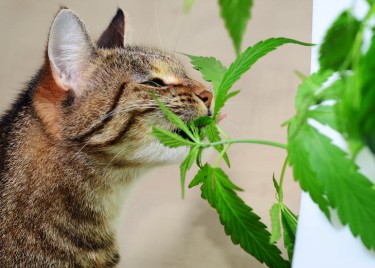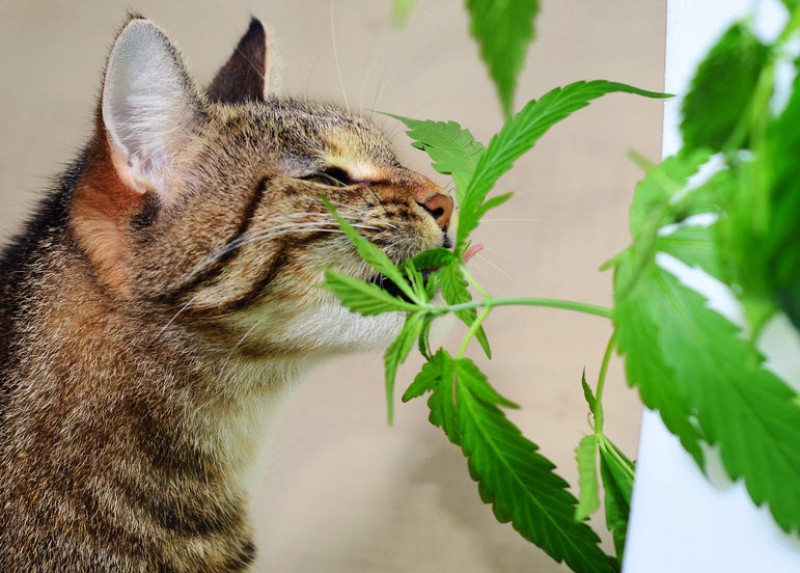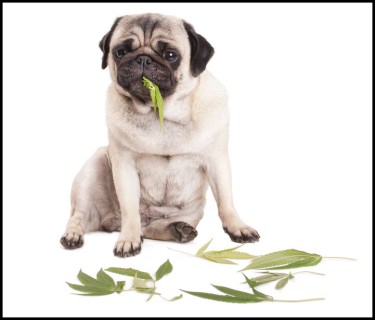
Keeping cats and dogs out of your cannabis garden is essential for protecting your plants and ensuring a successful harvest. Pets can inadvertently cause significant damage by digging, urinating, or defecating near the plants, which can lead to nutrient imbalances and stunted growth. Additionally, the presence of pets can create an unsafe environment for both the plants and the animals themselves. Cannabis plants contain compounds that can be toxic to pets if ingested, leading to serious health issues. Therefore, it is crucial to implement effective strategies to keep these furry friends away from your garden while ensuring their well-being.
This article explores various methods to effectively deter cats and dogs from your cannabis garden. By employing a combination of physical barriers, natural repellents, training techniques, and monitoring strategies, you can create a safe and thriving environment for your cannabis plants and ensure the well-being of your pets. The following sections will delve into specific tactics that can help you maintain the integrity of your garden while safeguarding your beloved pets.
Fencing Options
-
Install a Proper Fence
-
Using chicken wire is a cost-effective and efficient method to keep pets out. It is flexible and can be easily shaped to fit your garden's layout.
-
Bury the bottom of the fence at least 15 cm deep to prevent digging. This is crucial, as many dogs instinctively dig when they sense something interesting below the surface.
-
Ensure the fence stands at least 100 cm tall. This height is essential to deter both cats and dogs, as many breeds can jump high.
-
Lay Chicken Wire Flat
Place chicken wire flat on the ground around the perimeter of your garden. The sharp edges of the wire will make it uncomfortable for pets to walk on, effectively discouraging them from entering.
-
Consider Aesthetic Solutions
-
If you prefer a more visually appealing option, consider installing a wooden privacy fence or a chain-link fence. These fences can enhance your garden's appearance while providing effective barriers.
-
Ensure that any fence you choose stands at least 2.4 meters tall to prevent even the most determined pets from jumping over.
Repellent Plants and Scents
-
Plant Repellent Species
Incorporate plants known to repel cats and dogs, such as:
-
Citronella: Known for its strong scent that is unpleasant to pets.
-
Marigolds: Their odor can deter many animals.
-
Lavender: While pleasant to humans, its scent is often disliked by pets.
-
Rue: A traditional repellent plant.
-
Rosemary: Its strong aroma can help keep pets at bay.
-
Eucalyptus: Known for its potent scent.
-
Lemongrass: Another aromatic plant that pets tend to avoid.
-
Use Natural Repellents
-
Citrus peels: Scatter peels around the base of your plants. The scent is often unappealing to both cats and dogs.
-
Coffee grounds: Sprinkle used coffee grounds around your garden. They can act as a natural deterrent while enriching the soil.
Motion-Activated Devices
-
Motion-Activated Sprinklers
These devices can effectively deter pets by startling them with a sudden burst of water when they enter the garden. This unexpected spray can condition pets to associate the garden with an unpleasant experience. Be mindful to adjust the settings to ensure that the sprinklers do not overwater your plants, as excessive moisture can lead to root rot and other issues.
-
Ultrasonic Animal Repeller
These devices emit high-frequency sounds that are unpleasant to animals but typically inaudible to humans. The sound is triggered by motion sensors, activating when a pet approaches the garden.
Training and Supervision
-
Train Dogs
-
Consistent training can help teach dogs to avoid specific areas. Use positive reinforcement techniques, such as treats and praise, to encourage them to stay away from the garden. Is THC safe for pets? No always, remember.
-
Provide a designated area for digging and play. This can help satisfy their natural instincts without causing damage to your cannabis plants.
-
Manage Cats
-
Keep indoor litter boxes clean to discourage cats from seeking alternative bathroom spots in your garden.
-
For outdoor cats, create a sand-based area where they can relieve themselves. This will help divert their attention away from your cannabis plants.
Protecting Your Pets
-
Understand Cannabis Toxicity
-
Cannabis can be toxic to pets if ingested. Common symptoms of toxicity include lethargy, vomiting, incoordination, and in severe cases, coma.
-
Be aware of the signs of cannabis toxicity and seek veterinary assistance immediately if you suspect your pet has ingested any part of the plant.
-
Keep Cannabis Products Out of Reach
-
Store all cannabis plants and products safely away from pets. This includes not only the plants themselves but also any edibles or oils that may contain THC.
-
Educate yourself and others about the dangers of cannabis to pets to ensure a safe environment.
Conclusion
Keeping cats and dogs out of your cannabis garden requires a multi-faceted approach that combines physical barriers, natural repellents, and proper training. Installing fences and utilizing chicken wire can create effective barriers to deter pets from accessing your garden, while incorporating plants with strong scents can make the area less appealing to them. Additionally, providing designated play areas for your pets and using positive reinforcement techniques to train them to avoid the garden are crucial steps in maintaining a harmonious coexistence between your plants and furry friends.
Regularly monitoring your garden is essential to assess the effectiveness of your strategies and to make adjustments as needed. If certain methods are not working, be open to trying new approaches, such as adding motion-activated devices or changing the layout of your barriers. By being proactive and attentive, you can create a safe environment for both your cannabis plants and your pets.Ultimately, the combination of these methods will help you successfully protect your cannabis garden while ensuring the safety and well-being of your beloved animals. With a thoughtful and consistent approach, you can enjoy a flourishing garden that thrives alongside your furry companions.






